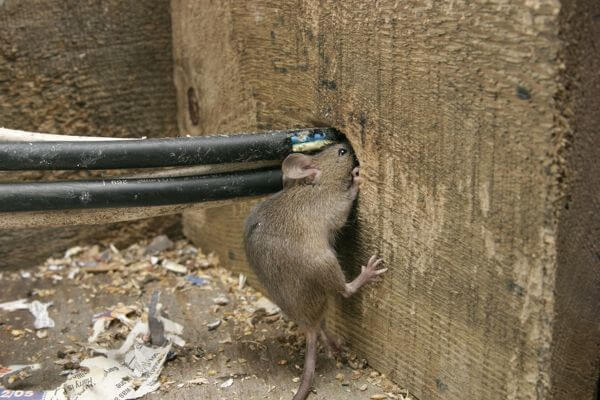They’re rodents; could they possibly be that smart? Yet, somehow, they always seem to find a way into your home and evade your every attempt to capture them. You might not even see them, but you know they’re there. They leave tell-tale signs of droppings in kitchen drawers and chewed-on boxes in cupboards. It’s pretty incredible to imagine that a rodent that doesn’t even measure up to the size of a human foot seems to outsmart people at every turn. Mice, it turns out, are pretty clever, and they’re more like humans than you might think. That doesn’t mean you want a colony establishing residency in your walls. If you spy the signs of a rodent invasion, contact Skedaddle for humane mice removal Waukesha.
Mouse Makeup
Have you ever noticed that whenever you hear about breakthroughs in medicine or psychology, you often hear about the information in the context of studies conducted on mice? Any person who took a college-level introductory psychology class probably recalls lab experiments where you tried to teach a rodent (usually a rat, but still a rodent) how to find its way through a maze using rewards. There’s a reason that scientists use mice as one of the primary subjects for understanding human physiology and psychology.
As astonishing as it may sound, the genetic makeup of mice is 95% the same as humans. There are important similarities in how their brains and bodies work with how ours do. Behaviorally, biologically and genetically, they’re a lot like us. Except that they are rodents, so they have much shorter life spans, and they breed far more rapidly than mammals, which makes them good subjects in research into our behavior and biology. One area that scientists are interested in learning more about is how memory works, and, yes, they’re using mice. They’re finding out some interesting things about mice and memory.
Mouse Memories
Have you ever caught the hint of a smell that instantly sends you back in time to a specific memory? For humans, there is a powerful association between smell and memories. The same holds for mice. It seems that mice connect smells with positive and negative experiences and either seek out or avoid future incidents linked to the presence of a particular scent. For instance, they avoid traps, even when tasty food is involved, because they also smell the scent of a human on the trap. They may also learn that the smell of a particular food item used as bait equates to danger.
Interestingly, it appears that mice pass on important memory information in their genes. Mice who are taught to fear a scent have offspring that also fear that scent, even though the offspring had no previous negative exposure, nor did they have an opportunity to pick up on any social cues. This shows that somehow learned information can become encoded in the genes as a sort of shared, multigenerational memory. When we recently responded to a call about a mouse invasion in a home in the middle of winter, we discovered mouse tracks leading to and from a house through a snowbank. Somehow, these clever critters remembered or knew how to find their way into and out of a home, even though the pile of snow would have hidden any visual and scent cues.
Humane Mouse Removal
If you’ve been outsmarted by a mouse or 50, Skedaddle is here to help. Our technicians have the experience and knowledge to outsmart them right back, but we do it humanely and safely. We don’t use harmful chemicals or traps that don’t work, yet we’ll make sure all of your rodent residents are evicted without any way to return in the future. They’ll still get to live out their mouse lives, just not in your home. Contact us today to schedule mice removal in Waukesha.



